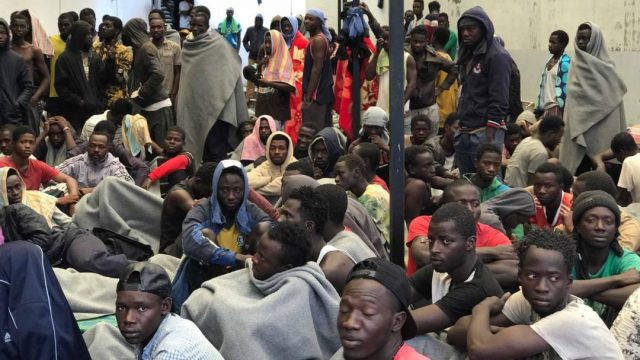An auctioneer calls out “800, 900, 1,000, 1,100 …” but he’s not selling off a car or a piece of land. He’s selling a human being.
CNN reports that at least nine locations in Libya are home to these slave auctions where young men are sold off for work. Most of them are migrants from other parts of Africa.
“Does anybody need a digger? This is a digger, a big strong man, he’ll dig,” the salesman, dressed in camouflage gear, says. “What am I bid, what am I bid?”Buyers raise their hands as the price rises, “500, 550, 600, 650 …” Within minutes it is all over and the men, utterly resigned to their fate, are being handed over to their new “masters.”
After the auction, we met two of the men who had been sold. They were so traumatized by what they’d been through that they could not speak, and so scared that they were suspicious of everyone they met.
The men who are sold at these auctions are sometimes those who have run out of funds to get to Europe as they’ve journeyed from other parts of Africa to the north coast. One man, Victory, was “sold as a laborer by his smugglers, who told him that the profit made from the transactions would serve to reduce his debt. But after weeks of being forced to work, Victory was told the money he’d been bought for wasn’t enough. He was returned to his smugglers, only to be re-sold several more times.”
Victory was eventually released after his smugglers demanded ransom payments from his family. He is not in a detention center waiting to be sent back to Nigeria. “I go back and start back from square one. It’s very painful. Very painful.”







Freedom United is interested in hearing from our community and welcomes relevant, informed comments, advice, and insights that advance the conversation around our campaigns and advocacy. We value inclusivity and respect within our community. To be approved, your comments should be civil.